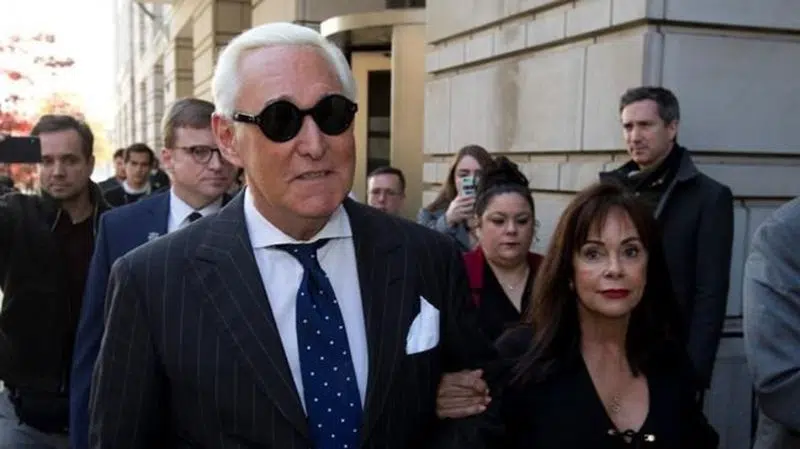
Feds seek 7 to 9 years in prison for Trump ally Roger Stone
WASHINGTON — Federal prosecutors are asking a judge to sentence President Donald Trump’s confidant Roger Stone to serve between seven and nine years in prison after his conviction on witness tampering and obstruction charges.
Stone, who is scheduled to be sentenced next week, was convicted in November of a seven-count indictment that accused him of lying to Congress, tampering with a witness and obstructing the House investigation into whether the Trump campaign co-ordinated with Russia to tip the 2016 election.
He was the sixth Trump aide or adviser to be convicted of charges brought as part of special counsel Robert Mueller’s Russia investigation.
In a sentencing memorandum filed Monday evening, prosecutors asked for Stone to serve between 87 and 108 months in federal prison, in accordance with federal sentencing guidelines. Such a sentence would send a message to deter others who might consider lying or obstructing a congressional probe or tampering with witnesses.


